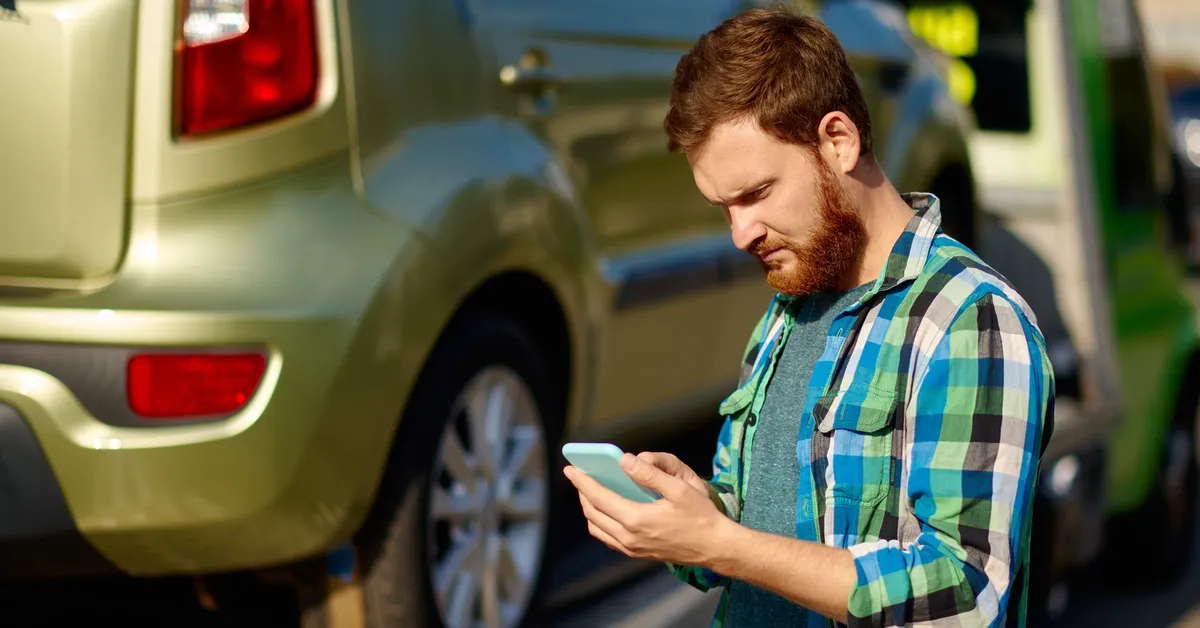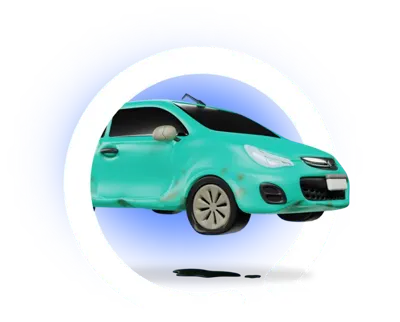
Scrapping your car is thankfully a lot easier than it used to be – and we’ve made sure to do our part to make it easier than ever here at EMR Vehicle Recycling. You only need a few quick details - like your car reg and postcode - to get started, and we’ll get you an instant online quote before you can say scrap my car. What’s more, we can even tell the DVLA for you, and take care of as much of the paperwork as we can – including sending you that all-important Certificate of Destruction, so you know your car has been scrapped responsibly.
Remove all personal items from the car
It’s easy to overlook the personal items tucked away in your car, but don’t forget to ensure everything is cleared out before scrapping. As well as the obvious places - like the glove compartment or boot - that includes some of the slightly more obscure places like under the seats, in the centre console, or in the door pockets.
It's also a good idea to remove any valuables, as we won’t be able to return anything to you once your car has been sent off to be recycled. This includes items like electronics, paperwork, sunglasses, or even sentimental things that might be tucked away. And of course, you’ll need to take extra care to ensure that important documents like the logbook (V5C) and any service history records are also removed. If you’ve got any finance agreements, make sure to settle them before proceeding, as they could make life complicated further down the line.
Remove the number plate if you plan to retain it
Speaking of valuable items, if you're planning on keeping your number plate for use on another car, or just for sentimental reasons, make sure you remove it before the car is scrapped. Once the car is dismantled, retrieving the number plate may be impossible, and you’ll lose the right to keep it.
Retaining the number plate can often involve transferring it to another car, so be sure to follow the proper steps and notify the DVLA. And of course, you’ll want to make sure that any personalised plates are not damaged during removal. Depending on your future plans, you might want to store the number plate in a safe, dry place to keep it in good condition for future use.
Cancel your insurance after the car is collected
Here’s one that it’s sometimes easy to forget – cancelling your car insurance. Now, while you’ll get a refund on your car tax when you scrap your car, the same is not true for your insurance. It’s not the insurer’s job to know when your car isn’t on the road, and it’s nobody’s responsibility to notify them except yours. So, once you've waved your old vehicle off remember to contact your insurance company.
It’s also a good opportunity for you to arrange for a refund on any unused portion of the insurance. If you forget to cancel it though, you will still be paying premiums for a car that may no longer even exist – and in these circumstances, they’re highly unlikely to give you a refund for that period.
Make sure the car is accessible for the recovery vehicle
On the day of collection (or ideally before), you’ll want to ensure that your car is parked in a location that is easily accessible for the recovery vehicle. That means making sure the path to the car is clear of obstructions - particularly if it isn’t running and needs to be towed.
If it’s parked on private property, make sure gates or barriers are unlocked to allow the recovery team to easily collect the car. If it’s in a difficult-to-reach spot on the other hand, you may need to coordinate with the scrapyard in advance to make sure they can bring the right kind of recovery vehicle to handle the job. In some cases, there may be a need for specialist equipment to collect the car, so it’s always a good idea to check what’s required before the day of collection.
Let the DVLA know you’ve scrapped the car
As we’ve touched on above, when you use our service here at EMR Vehicle Recycling, we’ll generally take care of notifying the DVLA on your behalf. However, it’s still not a bad idea to notify the DVLA yourself too – belt and braces, as they say!
If the DVLA don't know that you’d scrapped your car, you’d still be legally registered as the owner, and therefore liable for road tax (at the very least).
Request the Certificate of Destruction (CoD)
The CoD is confirmation that your car has been legally disposed of by an Authorised Treatment Facility (ATF). For your own reassurance, you can request a copy of your Certificate of Destruction from EMR Vehicle Recycling once your car has been processed.
One final thing – don’t accept cash for your car!
Before we finish, it’s worth mentioning a final point – it’s really important to avoid falling into the trap of accepting cash offers for your car. Cash for cars is a very catchy term, but it’s been illegal for quite a long time now, because it’s very hard to trace. It was outlawed by the Scrap Metal Dealers Act of 2013, which made it a legal requirement to take card payments and maintain customer records – thereby successfully cutting down on fraud and a lot of related crime in the industry.
Of course, you don’t have to worry about any of that here at EMR Vehicle Recycling. We know what we’re doing when it comes to recycling your beloved motor, and we’ve refined our processes to make sure we’re always doing our due diligence – so you can have complete peace of mind and just enjoy getting the very best price for your car.
All you have to do is enter your car reg and postcode into the fields on our homepage, and you’ll have an instant online quote before you can say scrap my car. Wondering how much yours could be worth?

